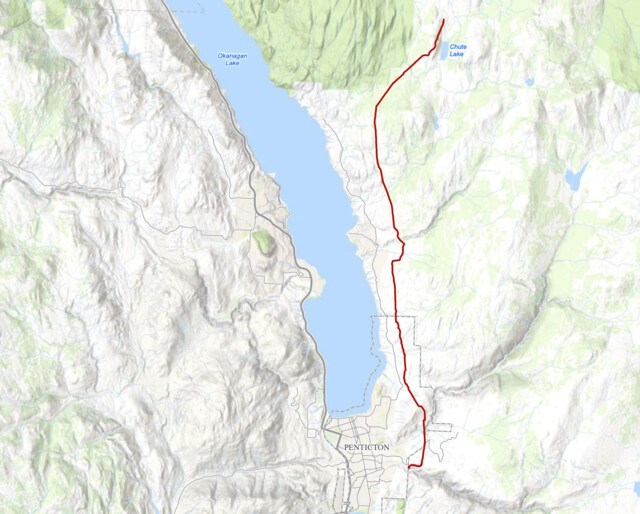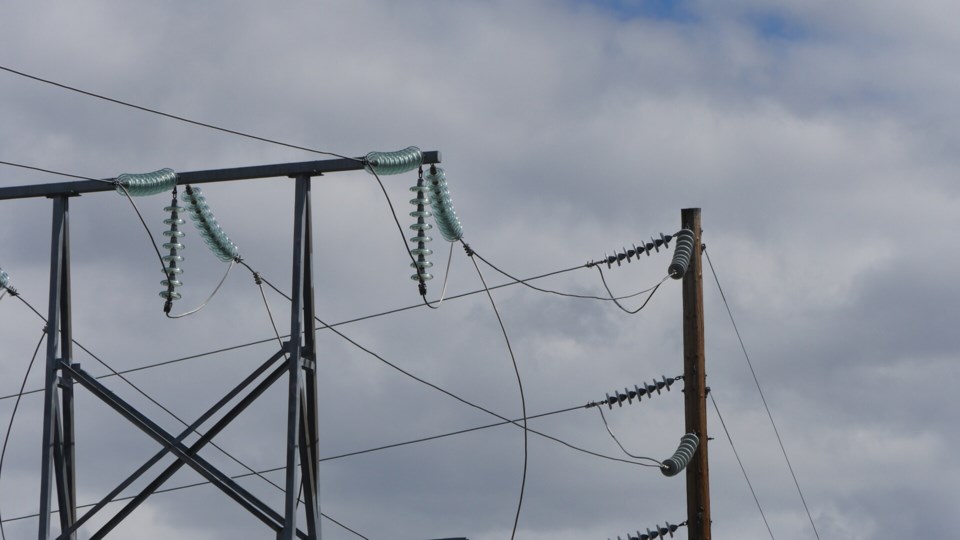Alarm bells are ringing about B.C.’s electricity supply and grid reliability at the same time that the province is slowly choking off access to natural gas heating.
B.C.'s electrical supply is “at risk of shortfall” in extreme conditions, such as a deep freeze, according to a recent report from the North American Electric Reliability Corporation.
The annual report, which did not recognize B.C. as an at-risk area in its previous edition, notes “unserved energy risks increase in 2026 as forecasted demand increases and natural-gas-fired generation retires.”
“That should be a wake up call, and should shake us out of our complacency that we have enough electricity to meet all of our potential desires, whether it's electrification of vehicles, industry or home heating,” said Barry Penner, a former B.C. cabinet minister now with Resource Works, a nonprofit that advocates for responsible resource development.
The December 2023 report came in the same month the BC Utilities Commission rejected a $327 million proposal from FortisBC for an expansion of natural gas infrastructure in the rapidly-growing Okanagan, primarily through the construction of a new pipeline between Chute Lake and Penticton.
FortisBC’s warnings of natural gas shortfalls in the region as early as 2026/27 were dismissed by the BCUC, which said natural gas demand may actually decrease as a result of the CleanBC climate plan, which includes a ban on natural gas space and water heating in new homes by 2030.
“You're facing it in the Okanagan. You are exhibit A of the impact of new government policy, restricting your energy options,” said Penner.
New homes will be constructed with heat pumps, which have minimum outdoor operating temperatures of roughly -20 C, backed up options like electrical baseboard heat. At the same time, B.C. is aiming to have all new vehicles sold in 2035 be fully-electric, sending demand for power soaring even higher.
Importing electricity
BC Hydro was forced in 2023 to import 20% of the electricity it served, a situation exacerbated the recent drought’s impact on hydroelectric stations.
“While imports are higher than average years due to managing through drought conditions, 80% of the power generated is still coming from hydroelectric facilities across the province,” said BC Hydro spokesperson Kevin Aquino.
BC Hydro did not answer questions about how much last year’s shortfall can be attributed to drought, or if power supply will recover if it rains.
Last year’s shortfall is twice the expected output of the under-construction Site C dam outside Fort. St. John.
“If you pull up to a BC Hydro charging station for your car… it says ‘powered by water’ Well, 2023, not so much,” said Penner, explaining that about 60% of power imported into B.C. was generated using fossil fuels.
“So we've been importing fossil fuel power, mostly from natural gas generation, into British Columbia. But now on the other hand, we're saying... you can't use natural gas anymore for home heating.”
In its application for the Okanagan upgrades, FortisBC said if the project was not approved West Kelowna, Lumby and Lavington would be the first to lose natural gas supply during extreme cold.
While they rejected the project, the BCUC acknowledged the possibility of a natural gas shortage in the region by 2026/7 during peak demand and ordered FortisBC to come up with alternate solutions.
"The BCUC, I mean, they're supposed to be an independent body. But they do take direction from the government,” said Kelowna West BC United MLA Ben Stewart.
“CleanBC is the plan that the government has, but based on everything I'm hearing from the government, they're putting so much weight on that, they're not making thoughtful decisions,” he continued.
“And that's just not the way you can run government. You can't always make these perfect decisions.”
Stewart says he is raising the issue with energy minister Jodie Osborne, noting BC Hydro has also been dragging its feet on investing in a second power transmission line for the Westside of Okanagan Lake. The region is the most populous in the province served by one power line, which has been threatened by wildfires multiples times.
“We're putting off things and we're going to run out, or we're going to have brownouts or other things like that — we're going to have energy issues," Stewart said.

Construction of the Site C project was announced in 2010 and is expected to be fully online by 2025. With that mega project only denting last year’s energy shortfall, the energy landscape in B.C. has been turned upside down in the lifespan of one construction project.
In 2017 when the BC NDP came to power and nearly killed the project, the BC Utilities Commission said the province may not need the electricity from Site C and that demand would not likely grow as much as BC Hydro forecast—a prediction that missed the mark wildly.
The 10,000 gigawatt hours of electricity BC Hydro imported last year cost the utility about $450 million.
"We're exporting dollars to purchase electricity to bring back into B.C., instead of using made-in-B.C. resources like natural gas," Penner added.
FortisBC, which also supplies electricity to a large part of the Southern Interior, generates about 40% of its own power and purchases the remainder from BC Hydro and the open market. The private utility pointed to the increased costs of buying electricity as a "significant driver" as the reason for a 6.74% rate increase.
"The cost of electricity has risen in recent years with the phasing out of coal plants, lower hydroelectricity generation and greater than anticipated demand for electricity with population growth in the region and increasing electrification of parts of the economy," FortisBC said in its rate-hike announcement.
It all results in a big need for new power-generating projects if B.C. wants to hit its climate targets.
Call for power
BC Hydro will be issuing a competitive 'call for power' in spring 2024, likely the first of many, seeking projects that can come online as early at 2028.
Whereas much of the independent power projects built under previous power calls were largely run-of-river, under the next power call, the new power projects that get approved will “probably a mix of some wind and solar," said Al Leonard, BC Hydro’s executive vice-president for capital infrastructure, at a Vancouver energy forum in November 2023.
BC Hydro won't pre-judge what independent power producers put forward.
“We are open to any technology," said Maureen Daschuk, executive vice-president of Integrated Planning for BC Hydro. "So we’re not saying this is a call for wind or this is a call for solar."
She did add, however, that B.C's large hydroelectric dams are natural complements to intermittent wind and solar.
BC Hydro has changed its load forecast in anticipation of new industrial customers, including new LNG plants and new mines, and population growth.
“We said the demand for electricity is higher than we thought it was going to be when we developed that first plan," Daschuk explained. “And the supply of electricity – especially from the biomass – was less than we thought it was going to be.”
BC Hydro is also receiving expressions of interest from sizeable customers, including proposed green hydrogen projects, which would require huge amounts of power.
With files from Nelson Bennett, Business in Vancouver





